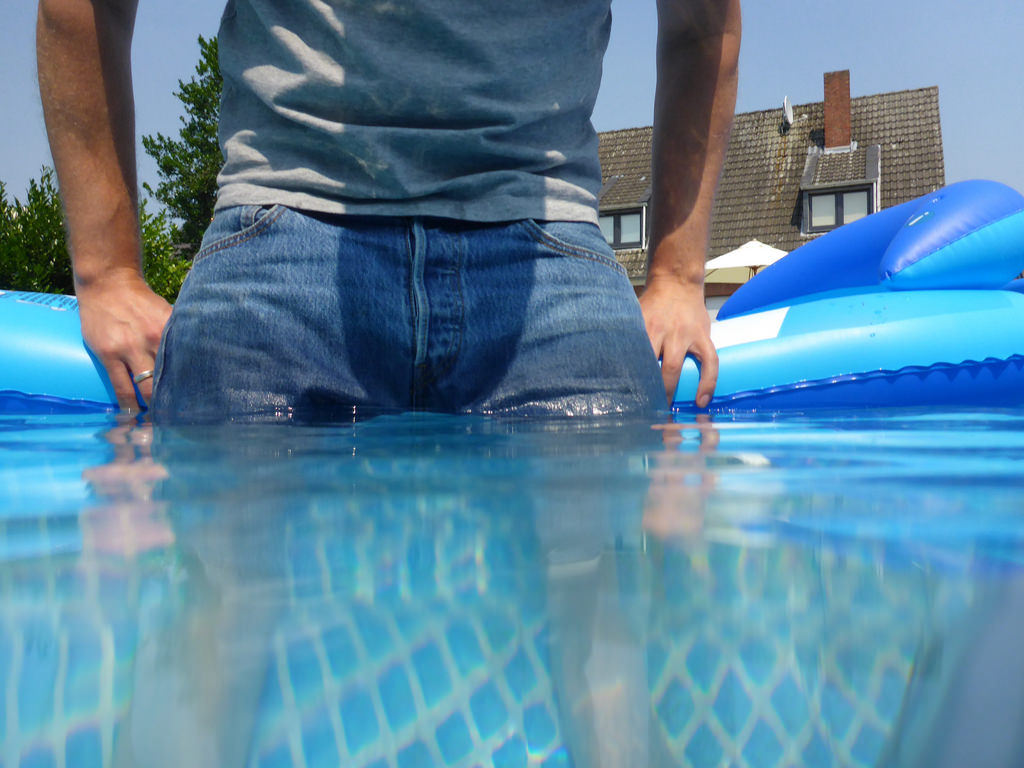
SPLISH! SPLASH! IT’S SUMMER POOL TIME AT APARTMENT COMMUNITIES
 It is hot in Colorado and that means many community pools are quite popular this time of year. If pools are busy, there are bound to be situations that will develop. We get to hear about people behaving poorly, from unsupervised children to trespassers. Pools’ presence are a valuable amenity for communities, however pools also attract bad behavior
It is hot in Colorado and that means many community pools are quite popular this time of year. If pools are busy, there are bound to be situations that will develop. We get to hear about people behaving poorly, from unsupervised children to trespassers. Pools’ presence are a valuable amenity for communities, however pools also attract bad behavior
One of the biggest challenges is trying to make sure the people using the community pool are people in your community. Many leases or community policies will require that a resident accompany any guest. If the community does not have secured access, it may be easy for trespassers to take a quick dip in the pool. Confronting trespassers and informing them that they need to leave or the police will be contacted is a direct approach that is often effective. The police do respond to trespassers; however, it is not always easy to tell who is authorized to be in the pool. It is important to confront the trespassers before jumping to calling the police; you want to make sure that you are really dealing with non-residents.
Every pool comes with rules, and rules it seems for some are made to be broken. Residents that choose to ignore pool rules are violating their lease. Some residents will respond to a verbal warning that their behavior needs to change. When they continue to misbehave and if it is disruptive, a resident can be told to leave the pool area. This behavior can be challenging if there is alcohol being consumed in the pool area. If the resident refuses to leave the pool, the police could be contacted to assist with the situation, if the resident is creating a disturbance. If the resident is violating the rules and ignoring staff, then their behavior could be grounds for being served with an eviction demand for compliance. Compliance demands inform the resident that they need to abide by the rules or face an eviction if there are continued violations. For more information about demands for compliance, be sure to sign up for one of our Eviction Workshop at thslawfirm.com/events.
 Sometimes it is not the behavior of the residents that is the problem, but what the residents are wearing that becomes the issue. Landlords will often have some rules that govern what is appropriate bathing attire. It is very common to restrict cut-off jeans, as those can present a problem with the mechanical operations of the pool. What can present more of a challenge is when there are no rules other than acceptable bathing attire, and the residents opt to don more risqué bathing suits, such as a thong or a speedo. Confronting a resident about their choice of clothing is problematic. If there is a rule that bans specific styles of bathing suits, a landlord has good grounds to address the situation, just like a behavioral violation of the rules. If however, the rules are vague or silent on attire, unless there is nudity that could violate municipal law, then a landlord may not be able to address the scantily dressed resident. For the most part, most landlords do not want to be the fashion police, however if a resident’s attire is creating a disturbance and resulting in complaints from other residents, there may be more grounds to confront the resident.
Sometimes it is not the behavior of the residents that is the problem, but what the residents are wearing that becomes the issue. Landlords will often have some rules that govern what is appropriate bathing attire. It is very common to restrict cut-off jeans, as those can present a problem with the mechanical operations of the pool. What can present more of a challenge is when there are no rules other than acceptable bathing attire, and the residents opt to don more risqué bathing suits, such as a thong or a speedo. Confronting a resident about their choice of clothing is problematic. If there is a rule that bans specific styles of bathing suits, a landlord has good grounds to address the situation, just like a behavioral violation of the rules. If however, the rules are vague or silent on attire, unless there is nudity that could violate municipal law, then a landlord may not be able to address the scantily dressed resident. For the most part, most landlords do not want to be the fashion police, however if a resident’s attire is creating a disturbance and resulting in complaints from other residents, there may be more grounds to confront the resident.
Cameras are another challenging area for landlords. Landlords can put up cameras in a pool area, so long as they are not pointed in an area where there would be an expectation of privacy, such as a changing area. Residents can create quite a disturbance if they bring cameras into the pool area and start photographing other residents. This type of behavior is most likely a general lease violation for behavior that creates a disturbance, resulting in a warning and/or service of a demand for compliance.
After-hours unauthorized access to the pool can be another common problem during the heat of the summer. Cameras in the pool area can certainly assist in trying to identify perpetrators, who may create a noise disturbance or engage in other acts. There is a legitimate business, health and safety reason to limit the hours of the pool. Typically, it is a security patrol, a camera, or a nearby neighbor that will aid the landlord in identifying and serving these late-night offenders.
Pools can be a lot of fun for residents. Confronting bad behavior directly is going to be the best way to try to ensure that the pool areas remain enjoyable for everyone.
denver landlords: apply now for your rental license
what to know about denver’s new notice requirements



